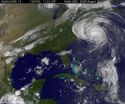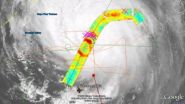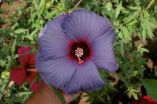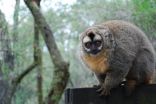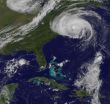(Press-News.org) Ten years on, Martin McKee reflects on report placed health system performance rankings firmly on political agenda.
Martin McKee, Professor of European Health at the London School of Hygiene & Tropical Medicine has contributed one of three commentaries appearing today in the journal Health Policy and Planning, each of which take a different perspective on the World Health Report 2000 on health systems (WHR2000).
It is ten years since the publication of WHR2000, a controversial document which many at the time believed had been published prematurely, and which introduced a new system of performance rankings applied to the health systems of each country. McKee recalls how few observers believed that the World Health Organisation would sanction such a system, given its sensitivity to complaints from health ministers in member states and the lengths its legal department go to in order to avoid appearing critical. Yet, in what he calls 'an act of remarkable courage', it did, leading to predictable responses from the winners and losers.
The tenth anniversary, and the forthcoming publication in November of the World Health Report 2010 on health systems financing, provide an ideal opportunity to reflect on the report's significance, and the changes it brought about.
McKee recalls the criticisms levelled at the report at the time, which ranged from accusations of being 'pro-market' to a claim by one US commentator, in an early taste of the arguments that President Obama would have to address almost a decade later, that the WHO was adopting a Marxist stance by arguing for any more than a token role for the state in providing health care. He also considers the difficulties compiling information on all 192 WHO Member States, some of whom barely functioned and many of which lacked control over all their territory and even the most basic information.
He argues that far from being premature, and despite its limitations, the report succeeded in placing the assessment of health system performance firmly on the political and research agendas. It emphasised that providing money for health care is not enough unless consideration is also given as how to supply those things that make it possible to deliver health care, such as trained staff, pharmaceuticals and appropriate facilities. Crucially, he says, the report stimulated a major programme of research and analysis, and considerable improvements in the availability of data, although there is still much to be done.
'Perhaps the greatest achievement of the 2000 World Health Report was to place health systems performance on the political agenda', says McKee. 'It is now much more difficult for a politician to dismiss comparative data on performance; perhaps this is the report's greatest legacy'.
The two other commentaries have been produced by Dr Julio Frenk, Dean of Harvard School of Public Health, who was involved in the design and execution of the report during his time as Executive Director of Evidence and Information for Policy at WHO, and Di McIntyre, Professor and South African Research Chair in 'Health and Wealth' at the University of Cape Town. Dr Frenk focuses on the context and content of the Report, discussing its important conceptual contributions and the concerns raised by some governments regarding the measurement of health system performance, while Professor McIntyre focuses on how the report contributed to health system financing, and led to more equitable financing and access to health care.
INFORMATION:
To read the commentaries in full, please go to http://heapol.oxfordjournals.org/current.dtl#COMMENTARIES.
If you would like to interview Professor Martin McKee, please contact Lindsay Wright or Sally Hall in the London School of Hygiene & Tropical Medicine Press Office on +44 (0)207 927 2073/2802.
Publication of World Health Report 2000 'an act of remarkable courage,' says school expert
Ten years on, Martin McKee reflects on report placed health system performance rankings firmly on political agenda
2010-09-04
ELSE PRESS RELEASES FROM THIS DATE:
GOES-13 satellite sees Hurricane Earl's clouds covering the US Northeast
2010-09-04
Hurricane Earl lashed the North Carolina coast last night and this morning, September 3, and is now headed for Cape Cod, Massachusetts. This morning's image from the GOES-13 satellite saw Hurricane Earl's clouds covering most of the northeastern U.S.
The Geostationary Operational Environmental Satellite known as GOES-13 captured an image of Hurricane Earl at 7:32 a.m. EDT this morning, September 3. The image clearly showed a huge Hurricane Earl northeast of North Carolina with cloud cover stretching over the northeastern U.S. A disorganized Fiona was also seen southeast ...
NASA hurricane researchers eye Earl's eye
2010-09-04
Hurricane Earl, currently a Category Two storm on the Saffir-Simpson scale with maximum sustained winds of 100 knots (115 miles per hour), continues to push relentlessly toward the U.S. East Coast, and NASA scientists, instruments and spacecraft are busy studying the storm from the air and space. Three NASA aircraft carrying 15 instruments are busy criss-crossing Earl as part of the agency's Genesis and Rapid Intensification Processes mission, or GRIP, which continues through Sept. 30. GRIP is designed to help improve our understanding of how hurricanes such as Earl form ...
AgriLife research hibiscus breeder comes up with the blue
2010-09-04
VERNON -- Dr. Dariusz Malinowski is seeing blue, and he is very excited.
For four years, Malinowski, an AgriLife Research plant physiologist and forage agronomist in Vernon, has been working with collaborators Steve Brown of the Texas Foundation Seed and Dr. William Pinchak and Shane Martin with AgriLife Research on a winter-hardy hibiscus breeding project.
The project was first a private hobby of the inventors and became a part of the strategic plan of the Texas AgriLife Research and Extension Center at Vernon in 2009. The flower commercialization is a part ...
Queen's study exposes cognitive effects of Parkinson's disease
2010-09-04
Researchers at Queen's University have found that people with Parkinson's disease can perform automated tasks better than people without the disease, but have significant difficulty switching from easy to hard tasks. The findings are a step towards understanding the aspects of the illness that affect the brain's ability to function on a cognitive level.
"We often think of Parkinson's disease as being a disorder of motor function," says Douglas Munoz, director of the Queen's Centre for Neuroscience Studies and a Canada Research Chair in Neuroscience. "But the issue is ...
Increase in Cambodia's vultures gives hope to imperiled scavengers
2010-09-04
While vultures across Asia teeter on the brink of extinction, the vultures of Cambodia are increasing in number, providing a beacon of hope for these threatened scavengers, according to the Wildlife Conservation Society (WCS) and other members of the Cambodia Vulture Conservation Project.
Researchers report that record numbers of vultures have been counted in Cambodia's annual vulture census, with 296 birds of three species found at multiple sites across the Northern and Eastern Plains of Cambodia by the Cambodia Vulture Conservation Project, a partnership of conservationists ...
Afla-Guard also protects corn crops
2010-09-04
Afla-Guard®, a biological control used to thwart the growth of fungi on peanuts, can be used on corn as well, according to a study by U.S. Department of Agriculture (USDA) scientists who helped develop it.
After extensive study and research trials in Texas, Afla-Guard® was registered by the U.S. Environmental Protection Agency (EPA) for use on corn, beginning with the 2009 crop.
Recently retired Agricultural Research Service (ARS) microbiologist Joe Dorner at the National Peanut Research Laboratory in Dawson, Ga., helped develop Afla-Guard®, a biological control for ...
Magnetism's subatomic roots
2010-09-04
The modern world -- with its ubiquitous electronic devices and electrical power -- can trace its lineage directly to the discovery, less than two centuries ago, of the link between electricity and magnetism. But while engineers have harnessed electromagnetic forces on a global scale, physicists still struggle to describe the dance between electrons that creates magnetic fields.
Two theoretical physicists from Rice University are reporting initial success in that area in a new paper in the Proceedings of the National Academy of Sciences. Their new conceptual model, which ...
MIT moves toward greener chemistry
2010-09-04
CAMBRIDGE, Mass. - Phosphorus, a mineral element found in rocks and bone, is a critical ingredient in fertilizers, pesticides, detergents and other industrial and household chemicals. Once phosphorus is mined from rocks, getting it into these products is hazardous and expensive, and chemists have been trying to streamline the process for decades.
MIT chemistry professor Christopher Cummins and one of his graduate students, Daniel Tofan, have developed a new way to attach phosphorus to organic compounds by first splitting the phosphorus with ultraviolet light. Their method, ...
Moonstruck primates: Owl monkeys need moonlight as much as a biological clock for nocturnal activity
2010-09-04
PHILADELPHIA –- An international collaboration led by a University of Pennsylvania anthropologist has shown that environmental factors, like temperature and light, play as much of a role in the activity of traditionally nocturnal monkeys as the circadian rhythm that regulates periods of sleep and wakefulness.
The study also indicates that when the senses relay information on these environmental factors, it can influence daily activity and, in the case of a particular monkey species, may have even produced evolutionary change. It is possible, according to the study results, ...
NASA imagery reveals a weaker, stretched out Fiona
2010-09-04
NASA satellite data has noticed that Tropical Storm Fiona is getting "longer." That is, the storm is elongating in almost a north-south direction, indicating that she's weakening and may not make it through the weekend. Meanwhile, forecasters are watching two other areas for development in the eastern Atlantic this weekend.
The Geostationary Operational Environmental Satellite, GOES-13 captured an image of Fiona on Friday, Sept. 3 at 10:32 a.m. EDT and the visible image showed a weak circulation in Fiona's center. It also appeared that Fiona's clouds were "stretched" ...
LAST 30 PRESS RELEASES:
Brainwaves of mothers and children synchronize when playing together – even in an acquired language
A holiday to better recovery
Cal Poly’s fifth Climate Solutions Now conference to take place Feb. 23-27
Mask-wearing during COVID-19 linked to reduced air pollution–triggered heart attack risk in Japan
Achieving cross-coupling reactions of fatty amide reduction radicals via iridium-photorelay catalysis and other strategies
Shorter may be sweeter: Study finds 15-second health ads can curb junk food cravings
Family relationships identified in Stone Age graves on Gotland
Effectiveness of exercise to ease osteoarthritis symptoms likely minimal and transient
Cost of copper must rise double to meet basic copper needs
A gel for wounds that won’t heal
Iron, carbon, and the art of toxic cleanup
Organic soil amendments work together to help sandy soils hold water longer, study finds
Hidden carbon in mangrove soils may play a larger role in climate regulation than previously thought
Weight-loss wonder pills prompt scrutiny of key ingredient
Nonprofit leader Diane Dodge to receive 2026 Penn Nursing Renfield Foundation Award for Global Women’s Health
Maternal smoking during pregnancy may be linked to higher blood pressure in children, NIH study finds
New Lund model aims to shorten the path to life-saving cell and gene therapies
Researchers create ultra-stretchable, liquid-repellent materials via laser ablation
Combining AI with OCT shows potential for detecting lipid-rich plaques in coronary arteries
SeaCast revolutionizes Mediterranean Sea forecasting with AI-powered speed and accuracy
JMIR Publications’ JMIR Bioinformatics and Biotechnology invites submissions on Bridging Data, AI, and Innovation to Transform Health
Honey bees navigate more precisely than previously thought
Air pollution may directly contribute to Alzheimer’s disease
Study finds early imaging after pediatric UTIs may do more harm than good
UC San Diego Health joins national research for maternal-fetal care
New biomarker predicts chemotherapy response in triple-negative breast cancer
Treatment algorithms featured in Brain Trauma Foundation’s update of guidelines for care of patients with penetrating traumatic brain injury
Over 40% of musicians experience tinnitus; hearing loss and hyperacusis also significantly elevated
Artificial intelligence predicts colorectal cancer risk in ulcerative colitis patients
Mayo Clinic installs first magnetic nanoparticle hyperthermia system for cancer research in the US
[Press-News.org] Publication of World Health Report 2000 'an act of remarkable courage,' says school expertTen years on, Martin McKee reflects on report placed health system performance rankings firmly on political agenda
